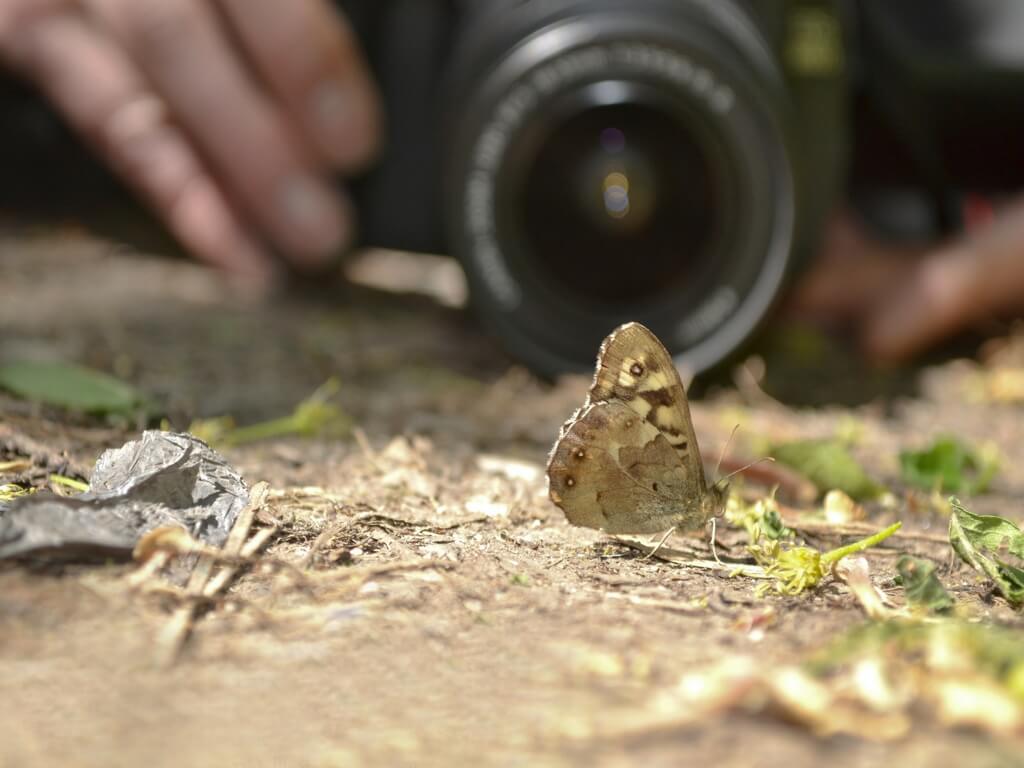
I choose kindness whenever it is possible. It is always possible.
I choose to see more than the bad choices people make in their lives. They are more than just their bad choices.
I choose to see more than what is obvious to the person in front of me. People are more than the sum of their parts.
In fact, I choose to pay attention to the narrative stories people live by. These are the stories that inform their worldviews. These worldviews condition how they interact with opportunities for growth and development. If you were to spend a day with me, you would hear narrative stories that weave together loneliness and fame; courage and loss; as well as indecision and resolve. You would realize that people are truly remarkable and capable of great things… If, and only if they choose to let go of what exists in their minds, and live in the here and now. I usually tell my clients to get out of their “head” and into the moment where they find themselves even if the current moment is painful, riddled with indecision, and challenging. In essence, I tell them to get going with living, and to consider the following proposition: The way forward lies not in the dialogue you have in your head, but in noticing how things really are in the HERE AND NOW. To truly notice how things really are, we need to train our mind to focus on what is happening in front of us. This training takes time, and it is possible for all of us to be fully present. It does not require that you meditate each day; albeit, it would be beneficial. What matters is that you focus your attention on the things that are happening now. The question is how? Well, for starters, I consider our “attention” to be just like any other precious resource. In our information age, it is constantly being diverted by the shinier objects in our lives. However, just like all precious resources- like wheat, water, and oil… we only have so much of it. And, just like any Network Effect, it becomes more valuable the more we use it. So, what exactly do I mean when I say to “pay attention”, and how does it relate to “kindness”, seeing people (including ourselves) as more than the bad decisions or mistakes they made, and realizing that people (and that includes you) are more than the sum of their parts? Well, here is the answer: “The more you practice bringing your attention back on the things that truly matter in your life, the closer you come to Living with Integrity”. In my view, a strong sense of integrity comprises three inter-related factors: (1) Seeing yourself as more than the sums of your parts; (2) Realizing that you are more than your bad decisions; and (3) Demonstrating acts of kindness toward yourself and others.
You are more than the sum of your parts
The first factor requires that we accept ourselves as being more than the sum of our parts. This means that our level of intelligence, our current skills, and competencies do not make all of us. We are not limited by those defined and circumscribed parts. In fact, it has to do with how we bring all those parts together in our interactions with situations and people that eventually influence whether we will move toward what is important to us. Moving toward what’s important to YOU is living with integrity. Let me illustrate this factor through the narrative stories of two individuals: We begin with Kim. When we first met, she arrived in her coaching session quite determined to let me know that she was a manager who fixed things and people. She mentioned feeling completely responsible for everyone’s work. When asked what she thought were her qualities that contributed to her assuming a management role, she mentioned being really good with numbers, having deep industry knowledge, and getting things done. During the course of our work, Kim discovered that seeing people as needing to be told what to do ALL the time was experienced as a huge burden. It pulled her away from being the person she wanted to be: Optimistic and joyful. Kim was not living with integrity because all of what she possessed (intellectual ability; know-how; and resourcefulness) was not being used to move her toward the person she wanted to be. When she began to use her cognitive skills and her resourcefulness in a manner that encouraged people to come up with their solutions, she began to feel more optimistic and happier in her role. Hence, closer to who she desired to be. Tony saw himself as a Company Transformer: He would take on change management assignments, and in the process of managing the change process he would leave “dead bodies” behind. Those were his words spoken in our first session. He always arrived in our sessions angry, anxious, and he often spoke of regrets. He learned that the skills he used to transform an organization: Perseverance, boldness, and risk-taking left him feeling empty inside because he was using these skills in a manner that moved him away from the person he wanted to be. He voiced in one of our sessions: “There is no integrity in what I do”. When I asked what he meant by that, he replied: “I am not this person. I became what they wanted me to be”. The journey ahead for Tony included recognizing that he was more than a brave person, and more than a change agent. Once he was able to see these qualities in terms of how they would help move him closer to the person he desired to be, his whole outlook changed. He was more engaging and positive with people around him.
You are more than your bad decisions
The second factor is accepting that we are more than our bad decisions or mistakes. Being able to accept failures builds psychological flexibility since it asks that we entertain options and move forward with a sense of “newness”. Learning how to discriminate between what’s going on in our head (that’s all the stuff we tell ourselves) and what’s really possible at the present time ensures we don’t struggle with unwanted inner stuff. People who are able to accept their failures and work with possibilities are more skilled at moving themselves closer to what’s important to them. The ability to notice possibilities requires seeing oneself as “I-in-the-process of finding options” as opposed to “I being the failure who is unable to think of options”. Noticing “I-in-the-process” of doing is living with integrity. Kim learned how to accept her failures by seeing opportunities in those “failed” experiences. She became skilled at noticing when her mind went into a mode of “fixing people”, which moved her away from the leader she wanted to be. By staying committed to the practice of noticing herself in the process of doing moved her closer to the coaching goal she set out for herself. She was able to experience what it meant to live her vision of herself. As for Tony, he had to accept that he had indeed hurt a lot of people- created high levels of anxiety and fear among those who worked for him. Accepting this meant an end to the ongoing inner dialogue of being tough, a mean person, and someone who didn’t care. This opened his mind to notice opportunities to bring people into the change process, give them a role, and have them lead him. By paying attention to the choices he was making while leading the change process instead of seeing himself as the outcome of the change initiative, led him to feel a greater sense of personal integrity. He once told me in session: “I feel like I have my life back”.
Demonstrate compassion
The final element is choosing kindness. I said I choose kindness whenever it is possible… and I said it is always possible. I wasn’t only referring toward others, but toward myself as well. Choosing kindness has to do with recognizing that our experiences hold the kernels of growth… even the most painful ones. The challenge here is that we spend most of our time immersed in our sea of words – that’s what we tell ourselves in our heads about our experiences. More often than not we get stuck by the negative words, and we stop trusting the world of possibilities. I have noticed that people who express a trusting attitude toward life despite having experienced incredibly painful moments also show greater kindness toward themselves and others. Kindness is the behavioral manifestation of compassion. Your capacity to trust life strengthens as you demonstrate compassion toward yourself and others. As your compassion takes greater presence in your life so does your integrity. Like so many VPs, Kim didn’t trust people to do things right. She would tell herself that she had no time to understand their viewpoints, and certainly no time to explain what she needed. She clearly did not trust people to do the work as she expected. As she began to shift the way she saw the usefulness of her intelligence and resourcefulness, she found that she had more patience to listen to their viewpoints. Through her actions of paying attention to people in a different way, she was seen as caring and concerned for their well-being. This new way of behaving made it easier for her to forgive her own mistakes. In this process of self-acceptance and forgiveness, she was more willing to demonstrate acts of kindness toward herself. In one of our sessions she stated, “I know I should not have lost my patience. Instead of getting upset, I simply smiled and told myself, “I will do better next time”. As for Tony, acting as the person he wanted to be (more caring), led to engaging conversations with people. It also nurtured a more trusting attitude toward life in general. Perceptions of him also changed. People expressed that he was kinder toward those who had a harder time getting on board with the change process; and more understanding toward those who experienced set-backs. In one of our sessions, he told me, “I can’t believe what I have been missing”. In Kim’s situation, her overall sense of integrity required coming to terms that she was more than just an expert or a smart and resourceful person. It required that she pays attention to how she was using her qualities to move herself closer to the leader she wanted to be. Through the process of experiencing this shift, she gained considerable fortitude to overcome her mistakes as a people manager without losing trust in herself and those around her. As for Tony, it was evident that his sense of integrity strengthened as he began to notice his decisions and actions, and whether they were moving him closer to where he desired to be. He realized that he can be a “doer” while also being kind; he can be “determined” while at the same time staying connected to those around him, and that he can “change his mind” and that doing so was acceptable.
Final Words
Noticing when we get stuck in the world of words (and therefore not living in the here and now) and directing our attention on behaviors that move us toward what is important to us in life is what people exercise in the process of being coached. Just as you are encouraged to notice yourself-in-the-process of your experiences, so too in coaching, the focus is on you and the choices you make to move closer to your desired state. The desired state is not something that lives in your head. It must find a way to manifest itself in reality. Hence, the ultimate goal of any coaching journey is to allow you to make choices that strengthen your attention on what matters most to you in your life. Focusing on what matters most is, in essence, living with integrity. To learn more about Papillon MDC Inc.’s Leadership Programs, click here. Note to readers: This piece comes from a keynote speech I gave as a guest speaker at Stikeman Elliott in December 2015. Names and some elements of context were altered to preserve confidentiality.




